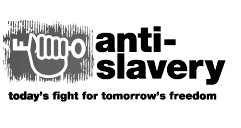NIKE Manufacturing
Nike has contracted with more than 700 shops around the world and has offices located in 45 countries outside the United States. Most of the factories are located in Asia, including Indonesia, China, Taiwan, India, Thailand, Vietnam, Pakistan, Philippines, and Malaysia. Nike is hesitant to disclose information about the contract companies it works with. However, due to harsh criticism from some organizations like CorpWatch, Nike has disclosed information about its contract factories in its Corporate Governance Report.
Human rights concerns
Sweatshops
Nike has been criticized for contracting with factories (known as Nike sweatshops) in countries such as China, Vietnam, Indonesia and Mexico. Vietnam Labor Watch, an activist group, has documented that factories contracted by Nike have violated minimum wage and overtime laws in Vietnam as late as 1996, although Nike claims that this practice has been stopped.[39] The company has been subject to much critical coverage of the often poor working conditions and exploitation of cheap overseas labor employed in the free trade zones where their goods are typically manufactured. Sources for this criticism include Naomi Klein's book No Logo and Michael Moore documentaries.
During the 1990s, Nike faced criticism for the use of child labor in Cambodia and Pakistan in factories it contracted to manufacture soccer balls. Although Nike took action to curb or at least reduce the practice, they continue to contract their production to companies that operate in areas where inadequate regulation and monitoring make it hard to ensure that child labor is not being used.
In 2001, a BBC documentary uncovered occurrences of child labor and poor working conditions in a Cambodian factory used by Nike. The documentary focused on six girls, who all worked seven days a week, often 16 hours a day.
Campaigns have been taken up by many colleges and universities, especially anti-globalisation groups, as well as several anti-sweatshop groups such as the United Students Against Sweatshops.
As of July 2011, Nike stated that two-thirds of its factories producing Converse products still do not meet the company's standards for worker treatment. A July 2011 Associated Press article stated that employees at the company's plants in Indonesia reported constant abuse from supervisors
http://en.wikipedia.org/wiki/Nike,_Inc.
Jazzy Berlin is an online guide for jazz, experiments, art and education in Berlin.
The Jazz Values
You can also take part with little things, slowly, to give hope for others. I really Like My NIKEs, it was my first NIKEs, but I ''wont do it'', any more. Be Jazzy, send us your video art or just say something, it will make a difference. Thank you!White slavery
Today
It's makes you feel
good good with yourself
when you got
your values always
with you in your bag
STOP CHILD SLAVERY TODAY.
Dear Nike,
I am writing to convey my disappointment regarding Nike's decision to continue doing business with Daewoo International, a company that is knowingly profiting from forced labour cotton in Uzbekistan.
For decades, the government of Uzbekistan, under the President Islam Karimov, has forced millions of children and adults - including teachers, nurses, doctors, other public servants and private sector employees to pick cotton under appalling conditions. Those who refuse are expelled from school, fired from their jobs, and denied public benefits or worse. The government combines these penalties with threats, detains and tortures activists seeking to monitor the situation, and steadfastly denies the International Labour Organization access to monitor during the cotton harvest.
Only a handful of companies have proven themselves callous enough to profit from Uzbekistan's forced labour system of cotton production, and even fewer companies are willing to interact with these ruthless operators.
Therefore I was surprised to learn that Nike, which stated its firm opposition to the use of forced labour in the Uzbek cotton sector, continues to do business with Daewoo and is refusing to follow the lead of several well-known apparel companies that have honoured the call by Uzbek human rights activists to remove Daewoo from their supply chains.
Although I understand that Nike only buys synthetic material from Daewoo and does not buy Daewoo cotton, Nike's decision to protect Daewoo sends a dangerous message to other companies and damages the efforts of Uzbek citizens who have risked their lives to bring justice to Uzbekistan's cotton fields. I find it upsetting that Nike harbours companies in its supply chain that are profiting from human rights violations rather than helping to bring an end to one of the most serious and systematic cases of state-sponsored forced labour in our time.
I therefore ask Nike to stop doing business with Daewoo and agree to implement the Daewoo Protocol - a series of steps Nike needs to take to eliminate Uzbek cotton from its supply chains.
www.antislavery.org

